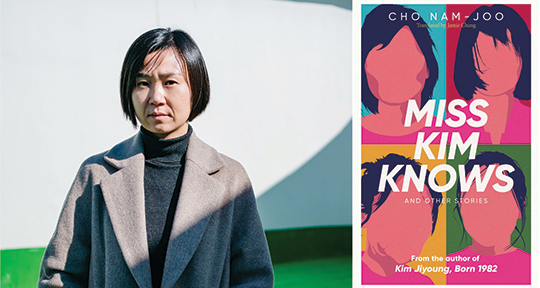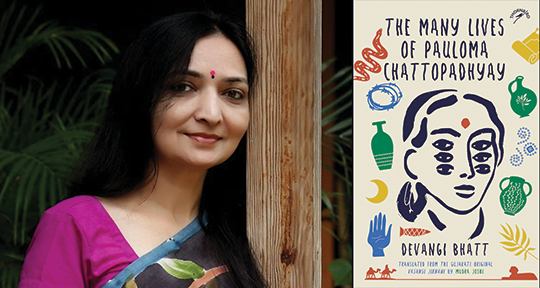Miss Kim Knows and Other Stories by Cho Nam-Joo, translated from the Korean by Jamie Chang, House of Anansi, 2024
Cho Nam-Joo, author of the bestselling novel Kim Ji-Young, Born 1982, has returned with Miss Kim Knows, a collection of eight short stories featuring an intergenerational array of characters and their struggles in a contemporary South Korea. The first story follows an elderly woman named Dongju as she visits her older sister, Geumju, who is housed in a care home for Alzheimer patients. Geumju’s health has devolved to the extent that Dongju is reminded of her son, whose life she had begged the doctor to save: “it didn’t matter if he had to lie in bed unable to talk or open his eyes.” As she compares the two, she wonders about the meaning of her life, and eventually, as the story goes on, we are made to learn that Dongju has also lost both her husband and her younger sister. The truth, that “death is so close and so common,” is brought to close regard. This opening tale then sets the tone for the rest of this collection, wherein we must reckon with what it means to live, what kind of life is worth living, and what it means to sacrifice one’s life—or to give up on it.
In “Dear Hyunnam Oppa,” a young woman moves to Seoul and dates a man for ten years before he makes a casual proposal of marriage, upon which she is forced to contemplate being bound even more inextricably to him. She asks for time to think and writes a long letter in response, taking us from their first interaction to the announcement that she is breaking up with him and moving to a place he shouldn’t try to find. She expresses gratitude for all the help he has offered since her arrival in Seoul many years ago, but her letter unveils the suffocation she felt—that despite her appreciation for his clear and insistent instructions when she first moved to Seoul, she does not want to continue to relinquish control to him. “There’s so much I want to do,” she says, “I can’t give up on my own life.” The longer the letter goes on, the more insufferable this male character becomes—a caricature of the archetype he is supposed to represent; he even expresses to the narrator’s friend how much he appreciates that she “isn’t like other girls,” and when the friend doesn’t take it well, he turns on her, calling her a bitch (classic). The most compelling element in this story came from its disturbing ordinariness—that a reader is able to understand the exact trajectory of the relationship, as well as all the little seemingly benign phrases (“be careful”; “let me”) that culminate in an unbearable cage and a watchful eye she cannot be rid of. In light of her apology in the beginning, the partner’s “care” is revealed as a desire to be obeyed, in control, and never doubted—especially as that is the only form of love he offers. He does not want the narrator to be “corrupted” or to make significant decisions on her own, but also wants her to be socially “capable” and successful. In clear, compelling prose, Cho demonstrates how “daily” this relationship is, how casually it chips away at her narrator’s sense of self, how she is unable to name or pinpoint her discomfort as her boyfriend gaslights her. Her friends (sometimes unknowingly) re-ignite her initial feelings of dissatisfaction, but ultimately agree that her gnawing unease should not be brushed under the rug, and it is these friendships that allow her to “see [herself] for who [she is].” READ MORE…




